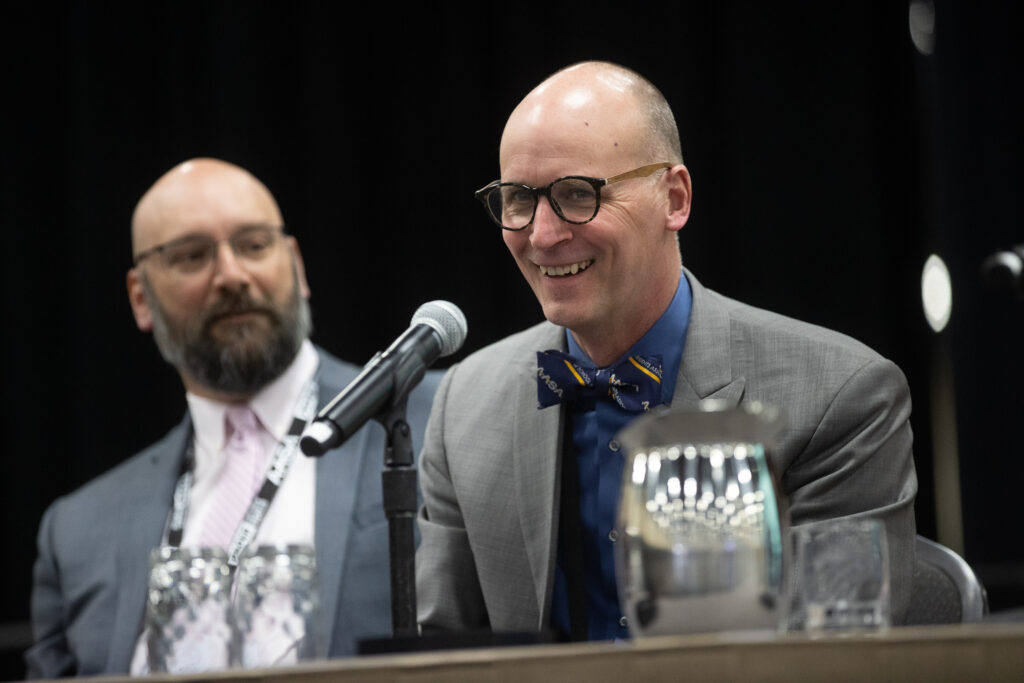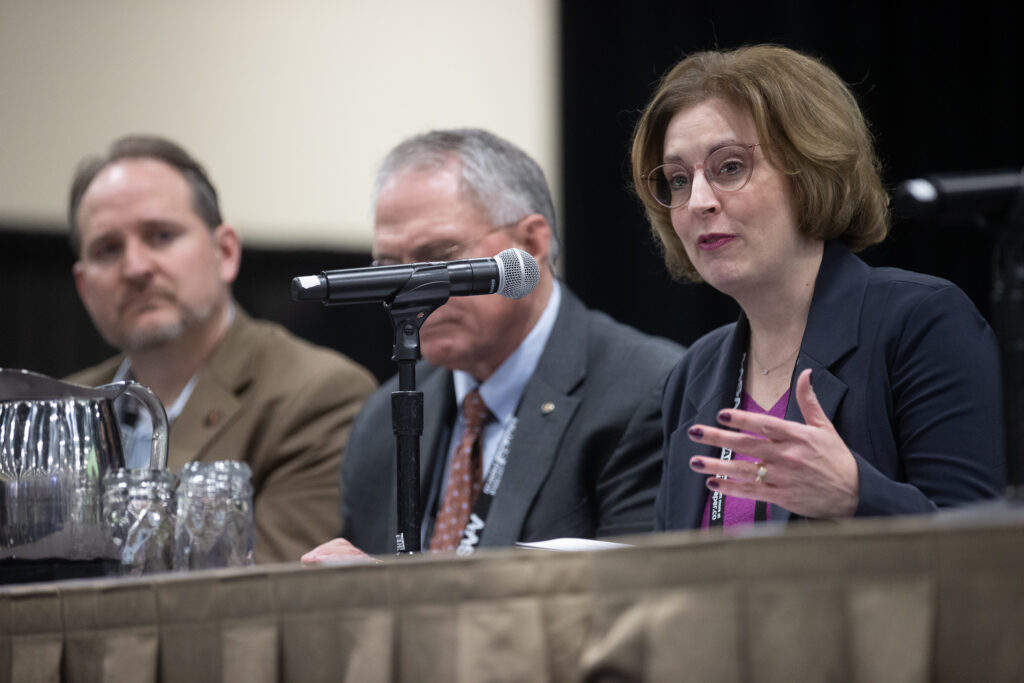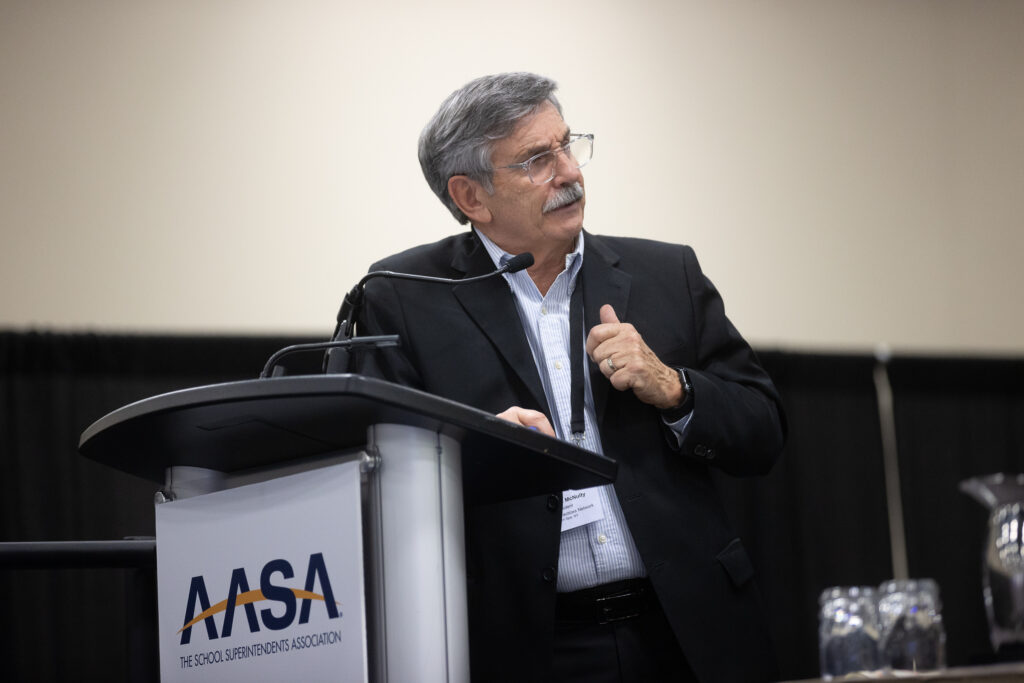Superintendents discussed what it takes to look forward, not back, as they discussed key takeaways from their involvement with AASA’s Learning 2025 Demonstration Systems Network, the subject of a conference session on Thursday afternoon.
“We always look back to do better,” said moderator Raymond McNulty, president of the Successful Practices Network. “That’s like trying to perfect the past to create the future.”
Looking forward, Iowa's biggest export, “other than corn and pigs, is our young people,” said Douglas Wheeler, head of the College Community School District in Cedar Rapids. “We want to develop career pathways where students can see themselves living and working in our community.”
In Collegiate Edu-Nation in Roscoe, Texas, superintendent Kim Alexander said students, starting at age 3, “ramp up for higher levels of rigor with relevance.” The aim is to prepare students for lifelong learning, for jobs that don’t yet exist, “and to reverse that suburban movement back in the ‘50s, where our best and our brightest left for urban and suburban areas, never to return, and we ended up with rural brain drain.”

In adopting a future-focused mindset, the aim is “to make sure our students have as many opportunities as possible to be productive, in whatever they want to do in their future,” said Mary Catherine Reljac, superintendent of the Fox Chapel Area School District in Pittsburgh.
A systematic approach is necessary because the future is consistently changing. As Reljac put it, “If we’re not trying to create our ‘next new,’ we are already behind.”
With the rapid speed of technological advancements, ambiguity is to be expected and “it’s okay to fail,” said Michael Nagler, superintendent of the Mineola School District in New York. “We fail in Mineola every day and we don’t fail with defeat. We fail forward.”
Superintendent Chris Gaines, of the Mehlville School District in St. Louis, said his district allows for students to create their own learning paths. “They’re doing the engineering work, or the artistic work, because they want to,” and not because it fits in their schedule, Gaines said.
Caroline Johns, superintendent of the Northgate School District in Pittsburgh, said it’s imperative to stay focused on high-priority areas even “with day-to-day [matters] grinding you down.” Carving out time to review periodically the district’s strategic plan is imperative.
Believing that a future focus means “getting ready for college but it doesn’t mean much more than that” is no longer acceptable, said John Malloy, superintendent of the San Ramon Valley Unified School District in Danville, Calif. Diving deep into the “why” of education is “space that has to be filled with that which stretches us.”
Toward that end, “Learning 2025 has been brilliant for us,” Malloy added. “Sometimes we can get really connected to our community and forget about what others are doing.”

Sean Aiken, superintendent of the Shaler Area School District in Pennsylvania, agreed. “Thinking deeper about how each decision we make ties around this word equity” is an important piece of his district’s efforts to engage learners as co-authors in their education. Whether it’s “around what our mission statement or core values are, having students at the table” is key, he said.
(Linda Chion is a senior editor on Conference Daily Online and a freelance writer and editor in Lithia, Fla.)


